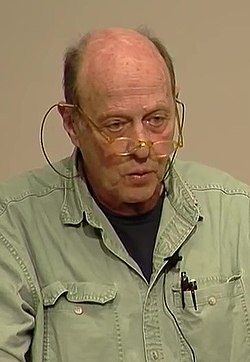James C. Scott Quote
One of the major purposes of state simplifications, collectivization, assembly lines, plantations, and planned communities alike is to strip down reality to the bare bones so that the rules will in fact explain more of the situation and provide a better guide to behavior. To the extent that this simplification can be imposed, those who make the rules can actually supply crucial guidance and instruction. This, at any rate, is what I take to be the inner logic of social, economic, and productive de-skilling. If the environment can be simplified down to the point where the rules do explain a great deal, those who formulate the rules and techniques have also greatly expanded their power. They have, correspondingly, diminished the power of those who do not. To the degree that they do succeed, cultivators with a high degree of autonomy, skills, experience, self-confidence, and adaptability are replaced by cultivators following instructions. Such reduction in diversity, movement, and life, to recall Jacobs’s term, represents a kind of social taxidermy. The
One of the major purposes of state simplifications, collectivization, assembly lines, plantations, and planned communities alike is to strip down reality to the bare bones so that the rules will in fact explain more of the situation and provide a better guide to behavior. To the extent that this simplification can be imposed, those who make the rules can actually supply crucial guidance and instruction. This, at any rate, is what I take to be the inner logic of social, economic, and productive de-skilling. If the environment can be simplified down to the point where the rules do explain a great deal, those who formulate the rules and techniques have also greatly expanded their power. They have, correspondingly, diminished the power of those who do not. To the degree that they do succeed, cultivators with a high degree of autonomy, skills, experience, self-confidence, and adaptability are replaced by cultivators following instructions. Such reduction in diversity, movement, and life, to recall Jacobs’s term, represents a kind of social taxidermy. The
Related Quotes
About James C. Scott
Trained as a political scientist, Scott's scholarship discussed peasant societies, state power, and political resistance. From 1968 to 1985, Scott wrote influentially on agrarian politics in peninsular Malaysia. While he retained a lifelong interest in Southeast Asia and peasantries, his later works ranged across many topics: quiet forms of political resistance, the failures of state-led social transformation, techniques used by non-state societies to avoid state control, commonplace uses of anarchist principles, and the rise of early agricultural states.
Scott received his bachelor's degree from Williams College and his MA and PhD in political science from Yale. He taught at the University of Wisconsin–Madison until 1976 and then at Yale, where he was Sterling Professor of Political Science. In 1991, he became director of Yale's Program in Agrarian Studies. At the time of his death, The New York Times described Scott as among the most widely read social scientists.
